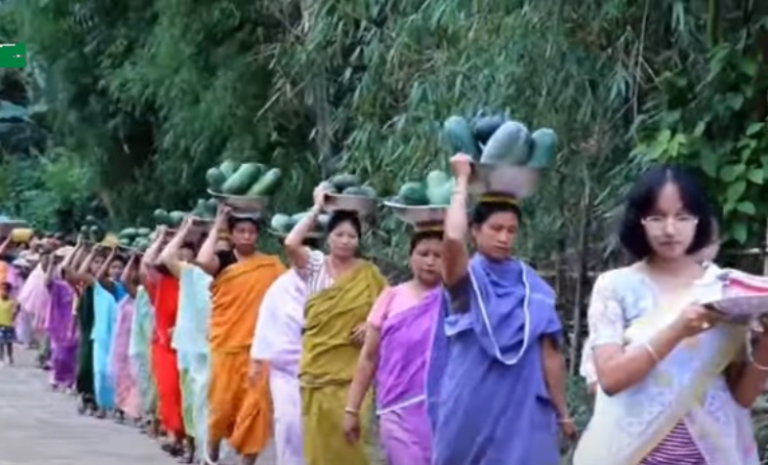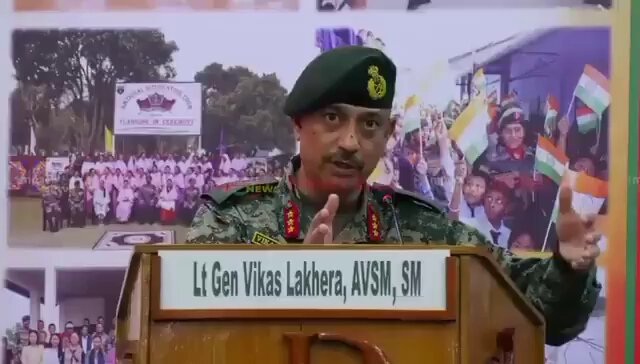Manipur’s Struggle for Attention: MP Angomcha Bimol Akoijam’s Critique of the Centre
Introduction
Manipur, a state nestled in the northeastern corner of India, has long been a region of rich cultural heritage and natural beauty. However, beneath its serene landscapes, Manipur has faced numerous challenges, particularly concerning political representation and state governance. In a recent discussion at ThinkEdu 2025, Inner Manipur Member of Parliament (MP) Angomcha Bimol Akoijam expressed his concerns about the Centre’s approach to Manipur, describing it as a case of being “out of mind and out of sight.”
The Context of the Statement
Angomcha Bimol Akoijam’s remark was made during a panel discussion at ThinkEdu 2025, focusing on the challenges and opportunities faced by first-time MPs in the era of social media. The session, chaired by The New Indian Express Editor Santwana Bhattacharya, also featured MPs Dr. R N Behera and John Brittas. The discussion delved into various issues, including the ongoing violence in Manipur, the caste census debate, and the controversy surrounding comments on Dr. B.R. Ambedkar.
Angomcha Bimol Akoijam’s Perspective
Reflecting on his impactful debut speech in Parliament, Akoijam attributed its emotional depth to his 35-40 years of academic experience. He criticized the Union government’s silence on the Manipur violence, stating, “The Manipur case is not out of sight or out of mind but rather a case of out of mind and out of sight.”
The Manipur Crisis
Manipur has been grappling with ethnic violence and unrest for over a year. Despite the severity of the situation, there has been a noticeable lack of attention from the central government. This neglect has led to widespread displacement, loss of life, and a breakdown of law and order. The absence of a robust response from the Centre has exacerbated the crisis, leaving the people of Manipur feeling marginalized and unheard.
Political Dynamics and Accountability
Akoijam highlighted the confusion in fixing accountability for the violence, noting that the Union Home Minister blamed the Manipur government, while the Chief Minister claimed a lack of authority. This blame-shifting has hindered effective governance and resolution of the crisis. The lack of a clear and unified response from both the state and central governments has left the people of Manipur in a state of uncertainty and fear.
The Role of Social Media and Public Discourse
The era of social media has transformed public discourse, providing platforms for citizens to voice their concerns and hold leaders accountable. However, it has also led to the spread of misinformation and polarization. MP John Brittas expressed concerns about AI’s potential to undermine democratic processes, emphasizing the need to preserve India’s diversity. The challenge lies in harnessing the positive aspects of social media while mitigating its negative impacts.
The Need for Restoring Parliamentary Sanctity
Akoijam stressed the importance of restoring Parliament’s sanctity, urging MPs to be honest in their roles within society. He emphasized that the credibility of the legislative body is paramount for the functioning of a healthy democracy. The erosion of trust in parliamentary institutions can lead to disengagement and apathy among the public, undermining the democratic process.
Conclusion
Manipur’s challenges are multifaceted, involving political, social, and economic dimensions. The Centre’s approach, as critiqued by MP Angomcha Bimol Akoijam, reflects a broader issue of regional neglect. Addressing Manipur’s concerns requires a comprehensive and empathetic approach, acknowledging the state’s unique issues and ensuring that its people are not left “out of mind and out of sight.”
FAQs
- What is the current situation in Manipur?
- Manipur is facing ethnic violence and unrest, leading to widespread displacement and a breakdown of law and order.
- Why did MP Angomcha Bimol Akoijam criticize the Centre?
- He criticized the Centre for its silence and lack of effective response to the ongoing crisis in Manipur.
- What is the role of social media in Manipur’s crisis?
- Social media has amplified public concerns but also contributed to misinformation, complicating the resolution of the crisis.
- How can the Centre address Manipur’s challenges?
- By adopting a comprehensive and empathetic approach, acknowledging Manipur’s unique issues, and ensuring its people are heard and supported.
- What is the significance of restoring parliamentary sanctity?
- Restoring parliamentary sanctity is crucial for maintaining public trust and ensuring the effective functioning of democratic institutions.



